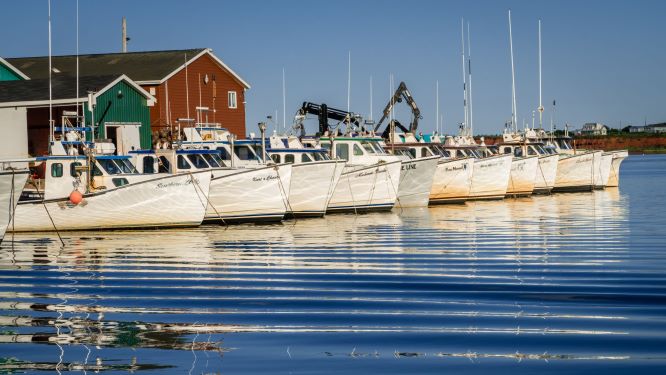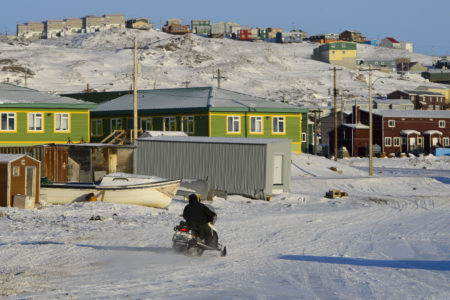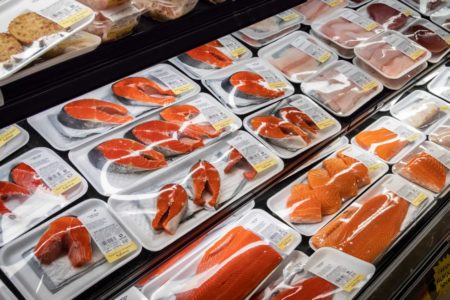
Canada’s food system faced tremendous challenges in the early months of the pandemic. Global supply chains for meat, seafood and other products were hampered because of trade stoppages, restaurant closures and labour challenges. But amidst this turmoil, boat-to-fork fishing operations such as community supported fisheries (CSFs), which sell the majority of their product directly to consumers, proved extremely resilient and able to keep domestic seafood on the table of Canadian consumers.
Unfortunately, these same small-scale fisheries face numerous barriers to success that are rooted in polices and regulations that treat seafood not as a source of food and food security, but as a resource for export. Indeed, fisheries and seafood are often inexplicably excluded from food policy discussions. Fisheries are never mentioned in the document Food Policy for Canada, and the newly announced Canadian Food Policy Advisory Council does not include any representation from fisheries or the seafood industry.
To see the effect of this omission, one need look only as far as the emerging conflict over the British Columbia spot prawn fishery, where one-size-fits-all policy threatens to effectively shut down an economically important regional food fishery without any clear concern regarding its sustainability. If we want to achieve a more resilient and sustainable overall food system, federal and provincial governments need to support this growing community of entrepreneurs with policies and regulatory arrangements that fit business models like CSFs, as well as encourage diversity in the Canadian seafood sector.
Fisheries are critical to the Canadian economy
Few Canadians realize the importance of seafood to the Canadian economy. Canada’s fisheries employ more than 70,000 Canadians and generate catches valued at more than $6 billion. Fisheries are also essential to the lives, cultures and food security of Indigenous peoples and coastal communities.
Seafood is also key to the sustainability of Canada’s food system. A highly nutritious and carbon-friendly source of protein, fish comes highly recommended by Canada’s Food Guide and the EAT-Lancet dietary guidelines as not just healthful, but also essential for addressing challenges like climate change.
Oddly, however, Canada imports more than half a million tonnes of seafood each year for domestic consumption, while the vast majority of the seafood harvested in Canada is exported.
This is a missed opportunity to strengthen Canada’s food systems and coastal community economies by supporting small-scale fisheries and their role in domestic food production and regional food security.
Small-scale Fisheries: Resilient and sustainable
The pandemic unmasked numerous vulnerabilities inherent to the long and complex supply chains that currently dominate our food systems. It also revealed a collective, but unspoken lack of trust in the systems that we all rely on to bring food to our plates – only 47 per cent of Canadians are confident in our food system.
That we lack trust in our food systems is not surprising. The way we produce and procure food creates a significant amount of environmental damage. Agriculture is responsible for roughly a quarter of global carbon emissions and drives tremendous deforestation. Fisheries, likewise, are being pushed to or past their limits around the world. Our relentless, industrial-scale harvests are driving changes in ocean ecosystems and global declines in fish biomass, while fisheries governance is plagued by challenges such as illegal fishing and seafood fraud.
However, entrepreneurs engaged in building boat-to-fork seafood models, which comprise a diverse set of business models including local and direct marketing and CSFs, are actively trying to improve fisheries’ sustainability. They are succeeding. Direct marketing can generate higher revenues than traditional fisheries, and reduce the potential for fraud and mislabeling through shorter and more transparent supply chains. CSFs, likewise, have been shown to significantly reduce the carbon footprint of the supply chain, while emphasizing fish stocks that are abundant and in season.
This burgeoning boat-to-fork sector is likewise not motivated by profit alone, but by a set of values for social and environmental sustainability that includes fair wages, fair prices and respect for the inherent value of ocean ecosystems. Further, these fishers often live and work in the coastal communities where they fish, contributing to local diets and economies with their product and earnings.
Policy obstacles to small-scale fisheries
While many small-scale fishers were able to find ways to adjust to the challenges created by the pandemic, the sector faces several obstacles that relate to a policy environment designed around large-scale industrial fishing and international trade.
In some cases, Canadian fishers have little control over to whom their catch is sold. For example, many commercial fisheries are managed with quota systems, which in places like British Columbia have become heavily consolidated among a few wealthy owners. As such, young fishers must rent the right to fish and have no choice but to sell their catch to large export-oriented processors.
Even in cases where fishers can choose to market their catch to Canadians, fishers report that food safety regulations geared to large operations can be prohibitive. Generally, fishers are allowed to sell only whole fish unless they have access to CFIA-certified processing facilities. While food safety protocols are essential, when they are designed to manage the risks associated with large-scale operations and long supply chains. they can be unnecessarily burdensome for small-scale operators.
A preferred policy framework would start with a recognition that fisheries are about food production and as such ought to be included in policy discussions alongside agriculture. This would be particularly impactful for small-scale fishers who market domestically, as local and small-scale agricultural producers enjoy numerous supports and benefits that fishers do not.
A case-in-point of how well-meaning policies can have unintended consequences for small-scale fishers is currently playing out in the aforementioned spot prawn fishery. Fisheries and Oceans Canada is reinterpreting a rule about inspecting catches that makes it illegal for small-scale operators to flash freeze their prawns at sea. The practice is essential to their ability to bring them to Canadian consumers at a premium price and to maintain a competitive edge over imported products. Without this option, key actors in Canada’s direct-to-consumer seafood community believe the change will eliminate the livelihoods of as many as 600 fishing families in the region, and cascade through local seafood supply chains.
The federal government implored Canadians to “buy local” in the early months of the pandemic. This fishery, and others like it, helped make that possible.
Treating fish as food in policy would be an explicit signal from policy-makers that Canada values fish as an essential component of our food system. It would also open the door for small-scale operators to benefit from the same supports, incentives and flexibility that entrepreneurs in agribusiness enjoy. A simple example would be the potential to harmonize regulatory requirements for fishermen to sell their catch directly to consumers or local retail outlets with policies that already exist for land-based farmers. Similarly, while a variety of regulatory avenues currently exist to protect and support important agricultural lands and infrastructure, such as farmland trusts and greenbelts, working waterfronts in Canada are being lost to development and gentrification and are not expressly protected by “right to farm” legislation that protects a wide array of agricultural interests, or other similar legislation
Canada’s small-scale fishers proved that they provide an essential component to our nation’s food system. Supporting them now with smart food policy is a clear way to strengthen Canada’s food systems and build our resilience to future disruptions.













